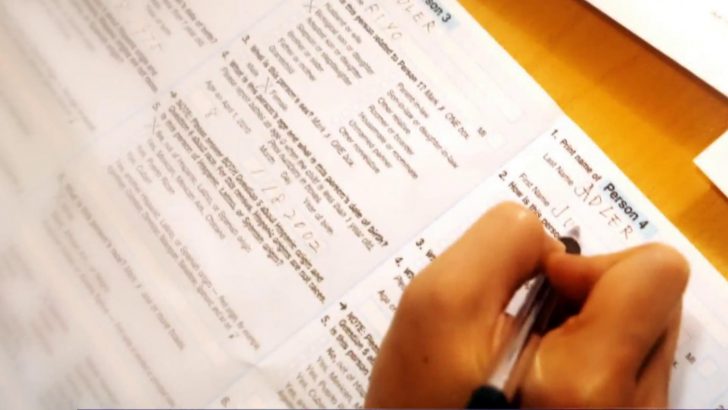“When it comes to the faith box, if you are an adherent of a faith, or a believer in any faith, say so”, writes Mary Kenny
I detect a campaign starting up on social media to encourage people – perhaps agnostics, waverers, those uncertain of their spiritual values – to append ‘no religion’ on the coming census form, due on April 24.
There are a couple of hashtags going around campaigning for a ‘no religion’ entry: #timetotickno and #separatechurchandstate.
Through the Facebook network, one Joanne Scott has posted this message: “If you don’t practice a religion or go to Mass, I implore you to give consideration to ticking ‘no religion’… The census figures influence policy on education, health and more so have a far reaching effect on things like schools access and women’s reproductive rights.”
What I find creepy about this thinking is, firstly, the implication that, normally, people might not tell the truth on census forms; secondly, that there should be a social media campaign to manipulate public responses so as to reach the outcome secularists seek.
A census form is a simple (and ancient) form of counting the number of people in a given state, and enumerating basic facts: the honest citizen is enjoined to tell the truth. That’s all.
When it comes to the faith box, if you are an adherent of a faith, or a believer in any faith, say so. If you are not a believer, tell the truth. But the idea of pausing your pencil over the categories and choosing one according to how you calculate politicians might respond to the statistics seems cynical and manipulative.
It’s called, in fact, ‘social engineering’. Social engineering is ignoring the individual to fit the societal ideal: if you want, say, fully secular education, you socially engineer the situation so that families who object will be outside the norm.
I hope some thoughtful geek will set up a rival hashtag campaign on the lines of #tellthetruthinthecensus. If a person genuinely has ‘no religion’, then say so. But if you have a set of spiritual values, be they ever so uncertain, examine your conscience and answer the question as truthfully as you can.
But don’t tick the box just for social engineering purposes.
Great musicality at 1916 event
I listened to a fabulous male voice chamber choir during the 1916 events at St Michan’s Church, Halston Street, Dublin on Monday (before giving a short talk). Sixteen young men, led by their energetic young conductor and founder, Ruaidhrí Ó Dálaigh, sang Irish music, folk and barber-shop songs with the greatest musicality and verve. They are a new group called The Ramparts, and their performances were both natural and polished.
I won’t be getting married again any time soon, but if I were involved in any such event, I’d book them (they might do me a nice funeral in the fullness of time).
It transpired that Ruaidhrí Ó Dálaigh is the choirmaster at Belvedere College, Dublin and the singers are, or have been, his students. (The Ramparts can be reached at: rampartschoir@gmail.com)
By the way, I would like to thank Sisters Monica Byrne and Marie O’Leary of the Sisters of Charity for the assistance I received in researching the nuns’ caring role in 1916, and Jack Power for research on the remarkable Capuchins.
Poetic biblical verse on nature
I am having to choose a short quote for the headstone on my husband’s grave and thinking about the New Testament phrases he liked best, as an Anglican. This is one I am considering: “Consider the lilies of the field, how they grow: they toil not, neither do they spin. And yet I say unto you that even Solomon in all his glory was not arrayed as one of these.” So poetic, unmaterialistic and appreciative of nature.


 Mary Kenny
Mary Kenny